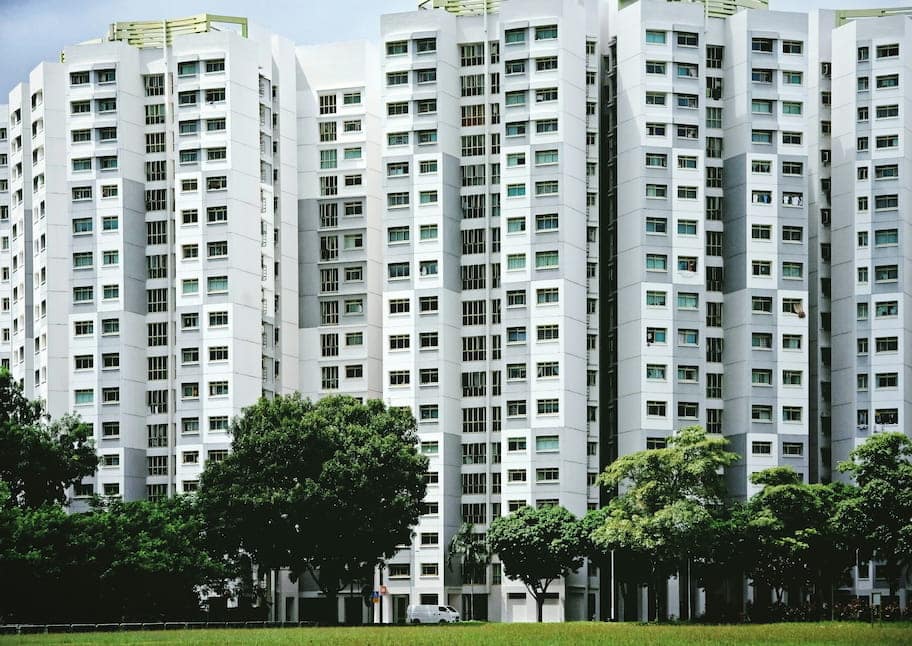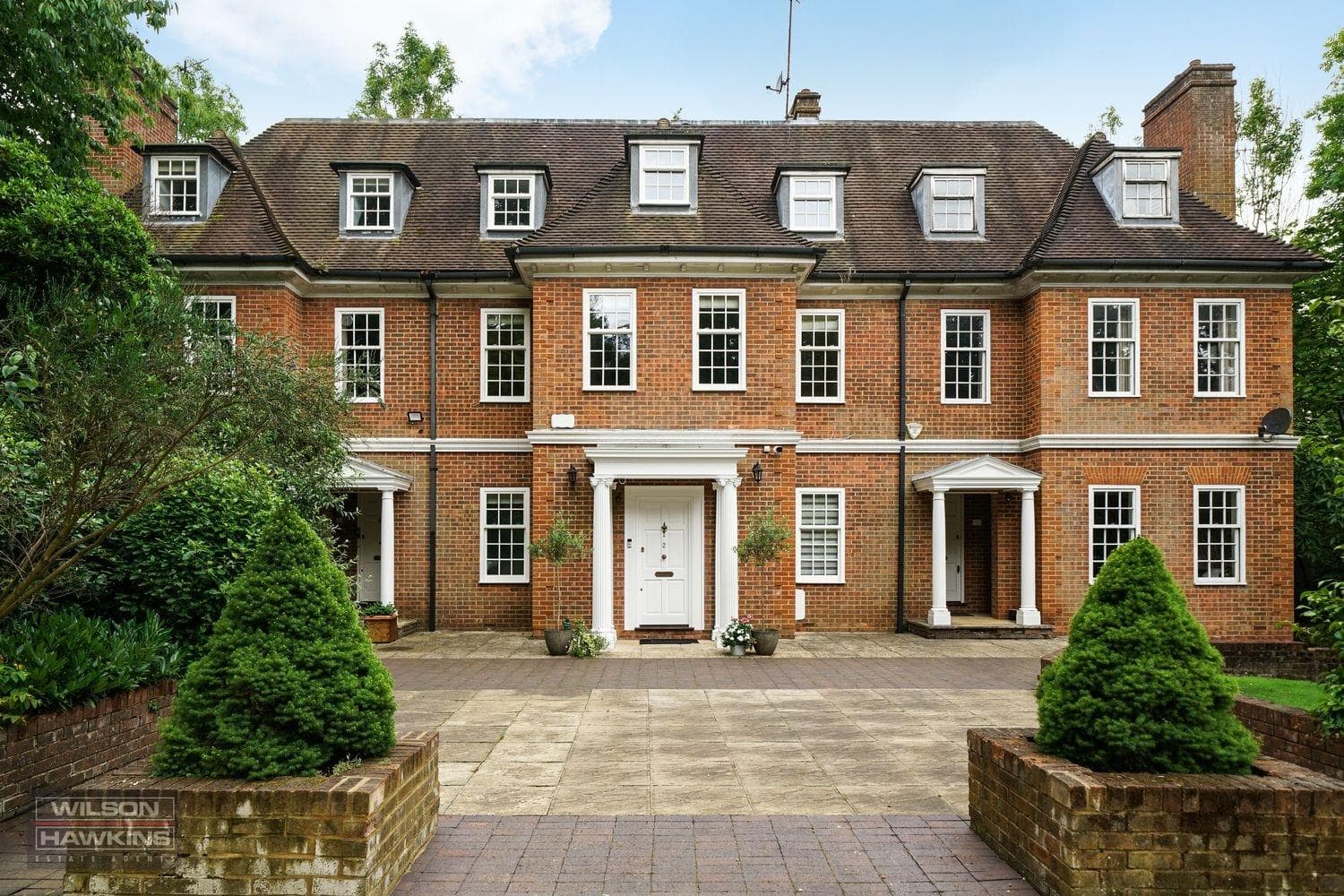Block management companies are responsible for much of what makes shared residential living function smoothly—or not. From handling repairs and maintenance to managing service charges, safety measures, and resident communication, their role is practical and highly visible. In buildings with multiple flats and shared infrastructure, the standard of block management can significantly shape residents’ everyday experiences. It’s a service that often sits in the background, but when it slips, everyone notices.
To explore how people living in flats managed by block management view this service, we used AI-driven audience profiling to synthesise insights from online discussions over the 12 months up to 12 May 2025, to a high statistical confidence level. This captured the views of 7,512 UK residents, offering a detailed and up-to-date look at how block management companies are performing in the eyes of those they serve, and where expectations are shifting.
Index
- There’s a 50% split between those whose property management experience is responsive and reliable, and proactive and thorough
- 50% of people living in block management agent flats say service charge statements are transparent, with a summary
- 23% of those living in block management flats classify current service charges as unjustified
- 53% say their service charges are fair vs above average compared to similar properties
- 100% of people living in flats managed by a block management agent feel maintenance activities are unclearly scheduled
- 57% rate the condition of their managed communal indoor areas as safe
- 100% of people living in flats managed by a block management agent have a fire alarm
- There’s a 50% split between those who rate building security as good because of periodic patrols and good basic locks
- 100% of our audience is likely to recommend their block management company with reservations
- 76% of our audience living in flats managed by a block management agent reside in London
- How Block Management Shapes Everyday Living
- Methodology
How Would You Describe The Overall Property Management Experience?
There’s a 50% split between those whose property management experience is responsive and reliable, and proactive and thorough
Descriptions of property management experiences are evenly divided between two standout qualities:
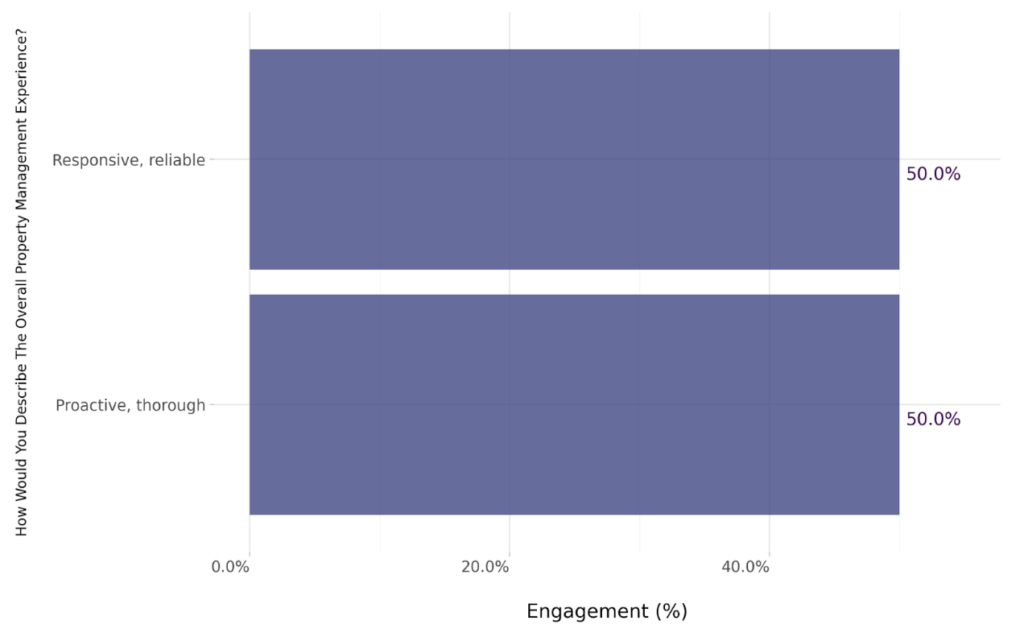
With nearly 24,000 property management companies now operating across the UK, and a growth rate of 3.1% per year since 2020, expectations around the overall property management experience are higher than ever. In this environment, two qualities rise to the top. 50% of people living in flats managed by a block management agent describe their property management experience as responsive and reliable, while the other 50% highlight a proactive and thorough approach.
It’s a balanced picture, but both terms point to strong performance. Some companies build trust through consistency and quick responses, while others stand out by staying ahead of issues and digging into the details. Either way, it’s clear that good service is defined by more than just ticking boxes.
How Transparent Are Your Service Charge Statements?
50% of people living in block management agent flats say service charge statements are transparent, with a summary
Transparency in service charge statements shows up in different ways, and not all of them work equally well:
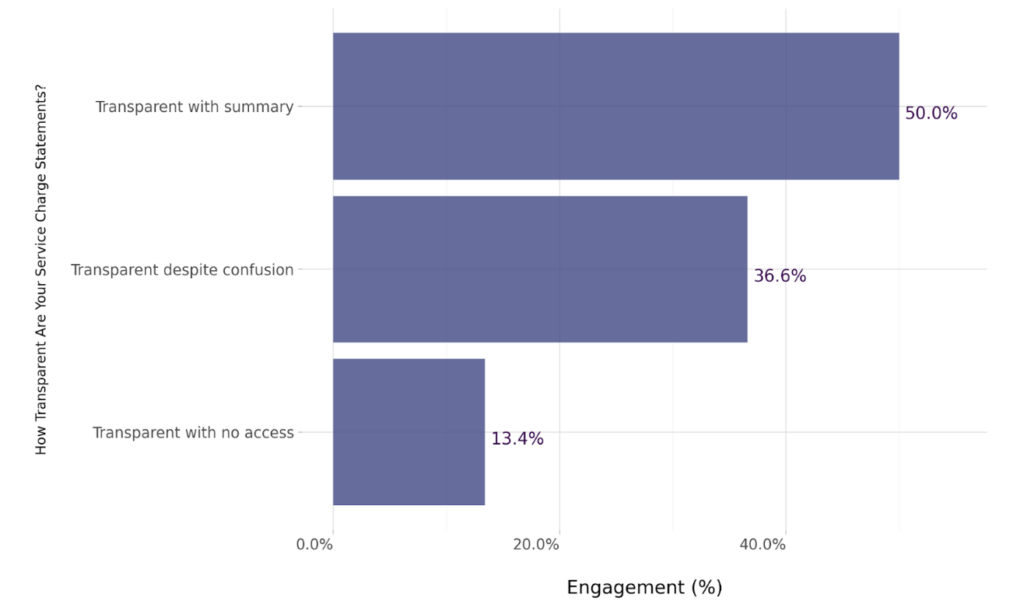
Transparency in service charge statements is far from uniform, and the differences tell us a lot about how block management companies handle communication. 50% of people living in flats managed by block management say their statements are transparent with a summary, which aligns with what leaseholders are entitled to by law.
If you pay a service charge, you have the right to ask for a summary showing how the charge is worked out and what it’s spent on, along with any paperwork supporting the summary, such as receipts. When that information is clearly laid out, it makes it easier for people to trust the process.
However, for 37% of people living in flats managed by block management, statements are transparent despite confusion, so the detail might be there, but not in a format that helps. And for 13%, it’s transparent with no access, which points to a real disconnect of being told things are transparent, but having no way to actually check.
How Would You Classify Your Current Service Charges?
23% of those living in block management flats classify current service charges as unjustified
Views on how service charges measure up today show just how divided leaseholders are on cost and value:
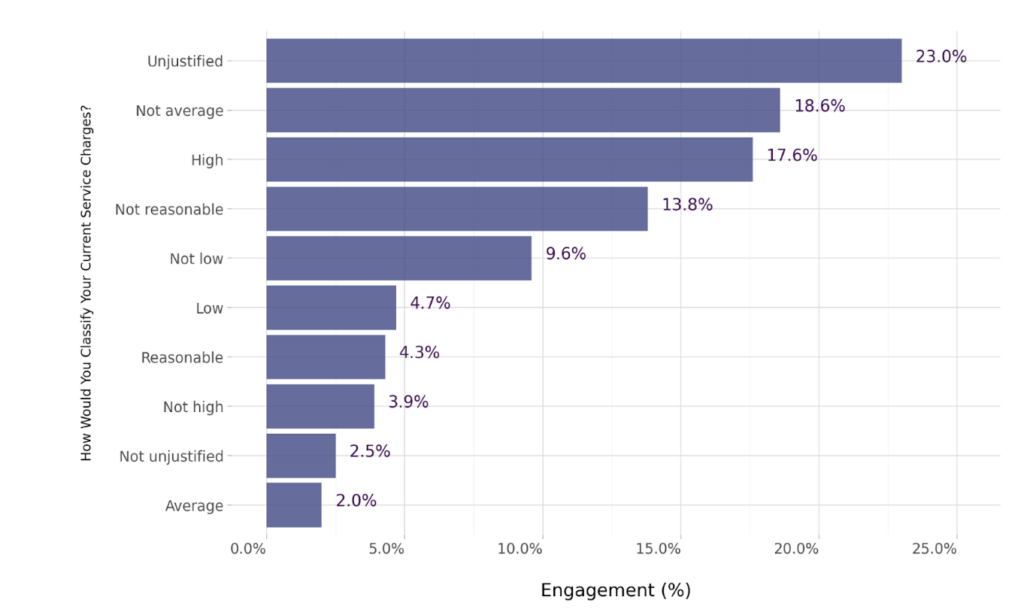
With soaring service charges meaning some UK leaseholders are now paying more in service charges than in mortgage repayments, it’s no surprise that many are critical in classifying their current service charges.
At 23%, the most common response is that current service charges are unjustified, pointing to a sense that what people living in flats managed by block management are being charged simply doesn’t reflect the value they receive in return. Another 19% say their charges are not average, suggesting they fall outside what would be considered normal or fair for the level of service provided. 18% go further, classifying their charges as high, underscoring growing financial pressure in a climate where service costs have steadily climbed.
Another 14% describe their charges as not reasonable, while 5% say they are not low. More neutral or positive views are rare. Just 4% say their charges are reasonable, another 4% say they are not high, 3% say not unjustified, and only 2% consider their charges average.
This wide spread of negative or hesitant classifications reflects more than frustration. It reveals a growing gap between what people pay and what they feel they’re getting. With costs rising and service levels often unchanged, many leaseholders are left questioning whether their charges still offer fair value.
How Fair Are Your Service Charges Compared To Similar Properties?
53% say their service charges are fair vs above average compared to similar properties
Perceptions of fairness often depend on how service charges stack up against what others are paying:
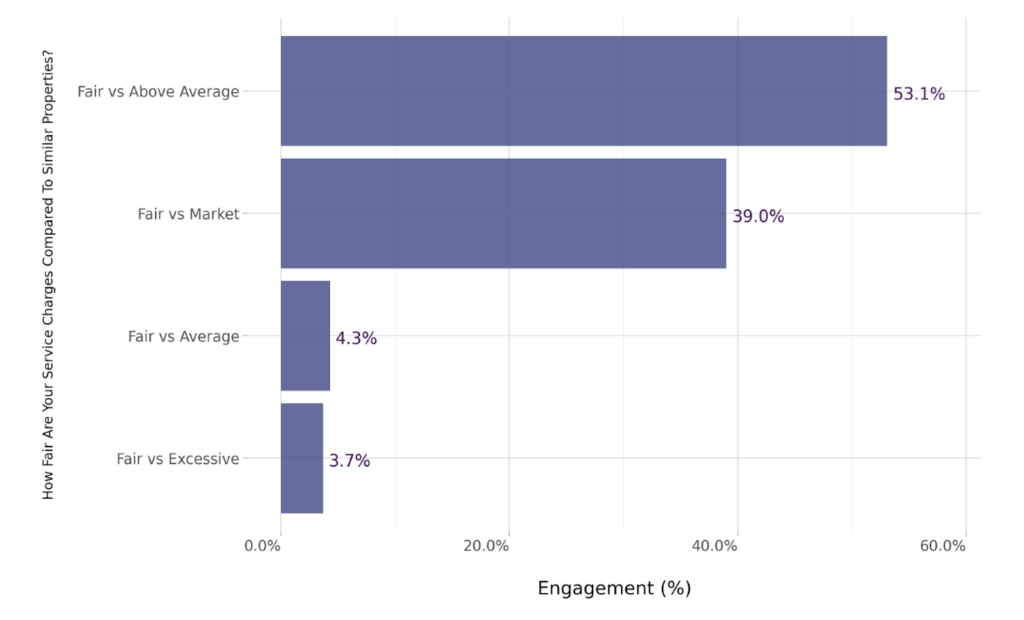
When looking at service charges compared to similar properties, most leaseholders see them as broadly fair, but there’s still plenty of nuance in how that fairness is judged. 53% of those people living in flats managed by block management describe their charges as fair vs above average, which suggests they recognise that while their costs may be higher, they still feel justified based on the level of service received. Another 39% say their charges are fair vs market, indicating they believe they’re in line with typical rates across comparable developments.
Smaller numbers take a different view. Just 4% classify their charges as fair vs average, while another 4% describe them as fair vs excessive. The wording here matters. Pairing “fair” with terms like “above average” or “excessive” points to an underlying tension between cost and context. Even when charges are accepted as fair, there’s an awareness that they may still sit at the higher end of what others are paying.
How Clearly Are Scheduled Maintenance Activities Communicated?
100% of people living in flats managed by a block management agent feel maintenance activities are unclearly scheduled
Communication around scheduled maintenance activities is falling short across the board:
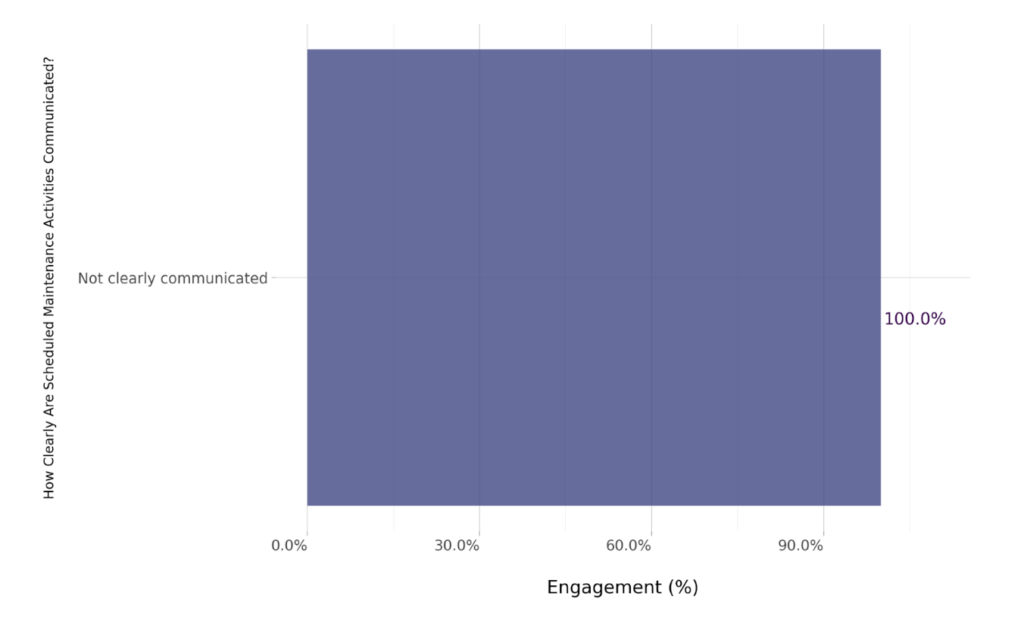
Keeping residents informed about scheduled maintenance is a basic but essential part of effective block management, and yet all 7,512 people in our audience said these activities are not clearly communicated. That’s a striking figure, especially given the role maintenance plays in building safety, budgeting, and long-term value.
Planned preventative maintenance (PPM) isn’t just about ticking boxes. It’s a strategy that can reduce reactive repair costs by 12–18% annually. But when residents aren’t informed about what’s being done, when, or why, the benefits are easily overlooked or misunderstood. Clear updates, timelines, and explanations help people feel included in the upkeep of their building. Without that, even proactive work can feel like disruption without purpose.
How Would You Rate The Condition Of Communal Indoor Areas?
57% rate the condition of their managed communal indoor areas as safe
Two key factors stand out when residents assess communal indoor areas:
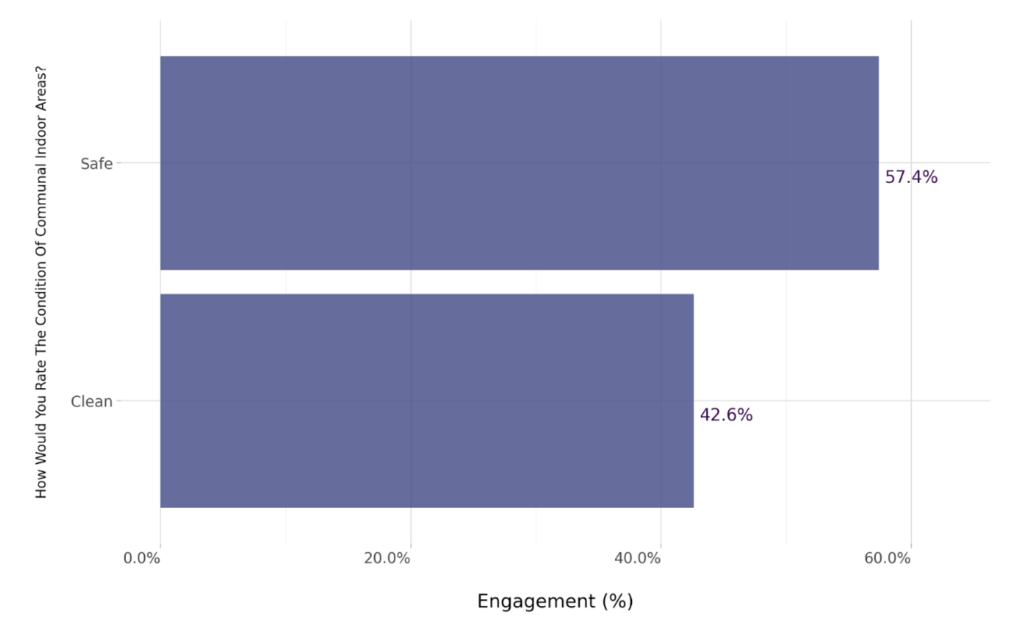
The condition of communal indoor areas plays a major role in how residents experience their building day to day. Of our audience, 57% rated these spaces as safe, while 43% described them as clean, indicating general satisfaction, but also a need for consistent upkeep.
Under Section 11 of the Landlord and Tenant Act 1985, landlords are legally required to keep communal areas in good repair. In many buildings, block management companies are responsible for meeting these standards on the landlord’s behalf. That includes maintaining lighting, heating, and general cleanliness in shared spaces. When safety is prioritised but cleanliness slips, it can affect how welcoming a space feels day to day. Both are essential; clean communal areas support wellbeing, while safe ones are a legal obligation.
What Security Measures Are Currently In Place In Your Building?
100% of people living in flats managed by a block management agent have a fire alarm
One safety measure stands out as being in place:
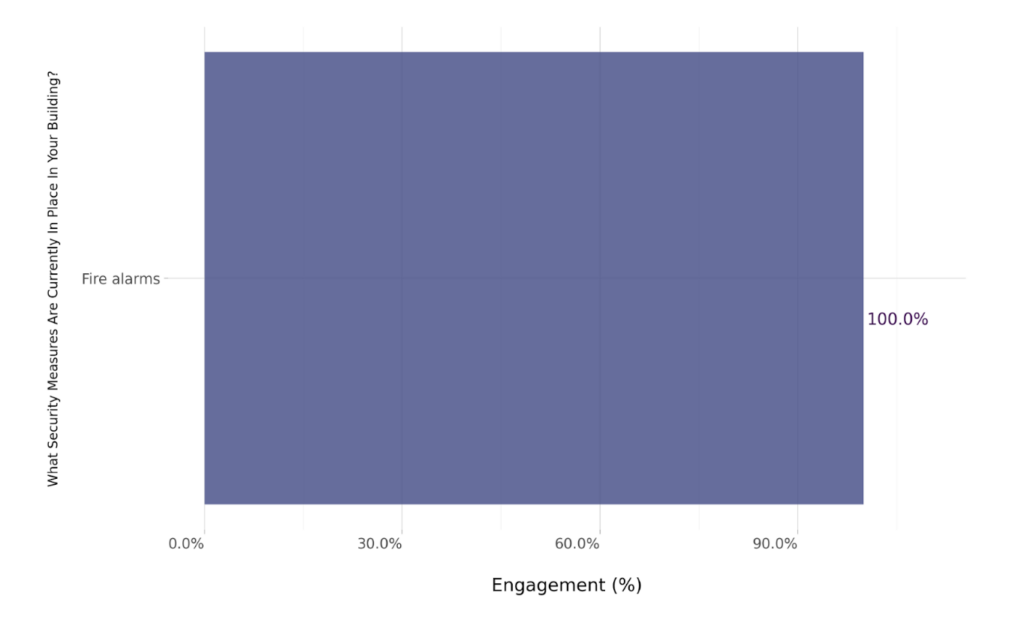
Safety measures currently in place play a vital role in protecting residents and shaping perceptions of how well a building is managed. In our dataset, all 7,512 people reported that fire alarms are present in their building. This aligns with UK regulations requiring landlords to fit at least one smoke alarm on every floor of a property used as living accommodation and to test them on the first day of each new tenancy. A range of laws place further responsibilities on landlords to ensure buildings are fire safe.
These regulations are just one part of a wider push to improve fire safety, particularly in the years since the Grenfell Tower fire, which exposed devastating gaps in how high-rise buildings were managed and maintained.
How Would You Rate The Building’s Security Measures?
There’s a 50% split between those who rate building security as good because of periodic patrols and good basic locks
Opinions are positive, with a 50/50 split on the type of security measure residents see as most effective:
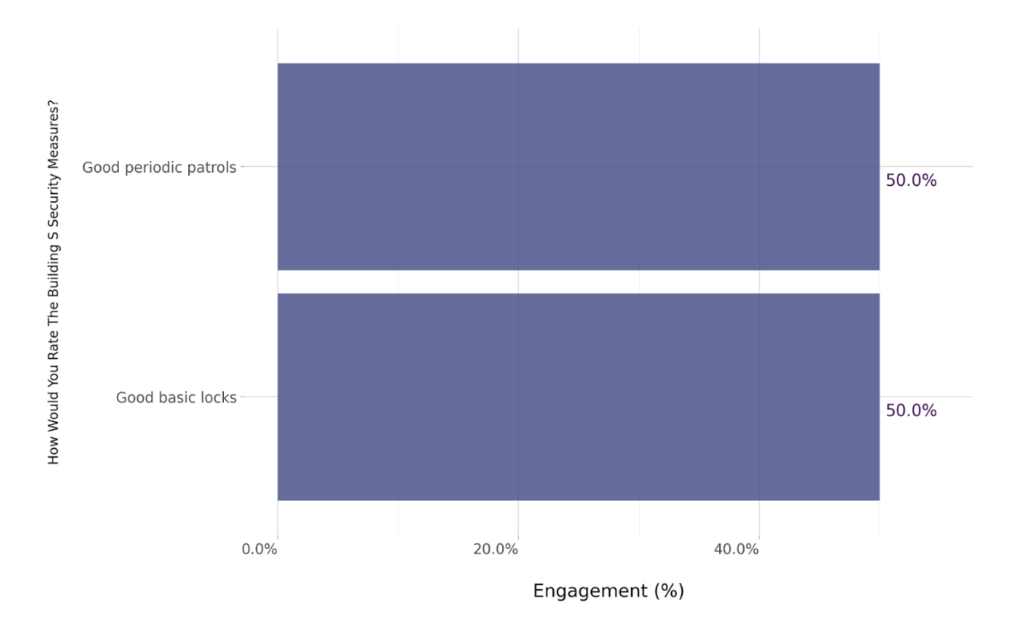
Security measures are one of the first things residents notice, and getting them right is one of the common challenges in block management. In this case, the feedback is entirely positive. 50% of residents living in flats managed by block management feel security is good, with periodic patrols, while the other 50% pointed to good security with basic locks.
These responses reflect two different strengths: a visible presence that reassures residents day to day and reliable entry-point protection that helps keep the building secure. Both are working, and while the specific approach may vary from one site to another, the outcome here is clear. When the basics are handled well, residents feel it. Good security doesn’t have to be complex. It just has to be consistent.
How Likely Are You To Recommend Your Block Management Company?
100% of our audience is likely to recommend their block management company with reservations
Residents are unanimous in offering a qualified endorsement of their block management company:
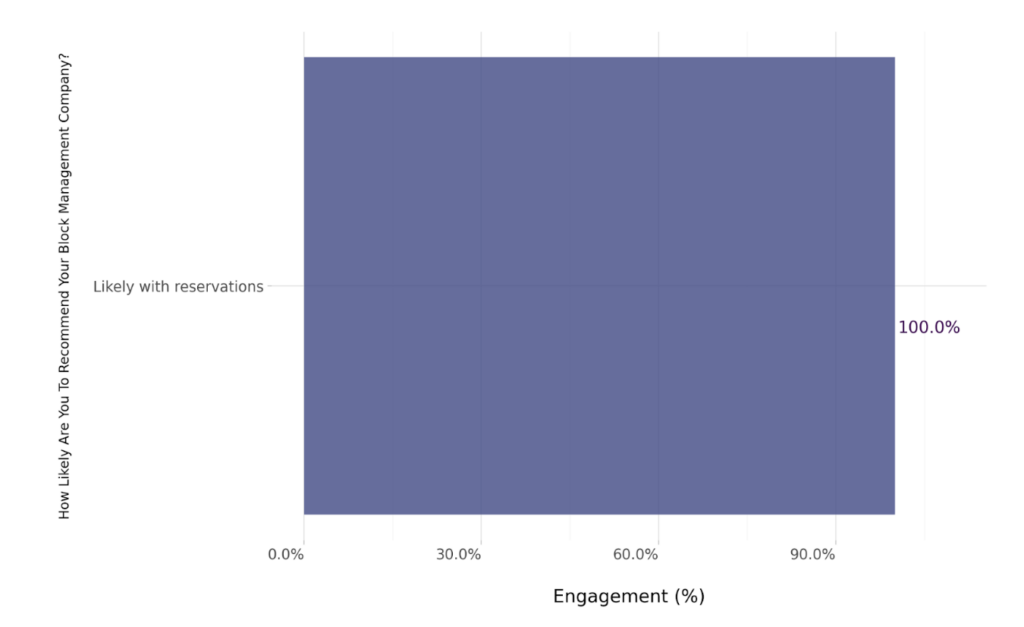
The likelihood of recommending a block management company says a lot about how residents feel, not just about the service, but about trust and consistency over time. All 7,512 people in our audience said they were likely to recommend their block management company, but with reservations. That’s a telling result. It suggests that while the overall experience is positive enough to endorse, something is holding people back from a full vote of confidence.
Those reservations could relate to cost, communication, response times, or long-term value. Whatever the reason, it highlights a middle ground, where block management is meeting expectations in some areas, but still has work to do to earn stronger, unqualified support from the people it serves.
Which City Do You Reside In?
76% of our audience living in flats managed by a block management agent reside in London
A closer look at where residents live highlights key areas of demand for block management:
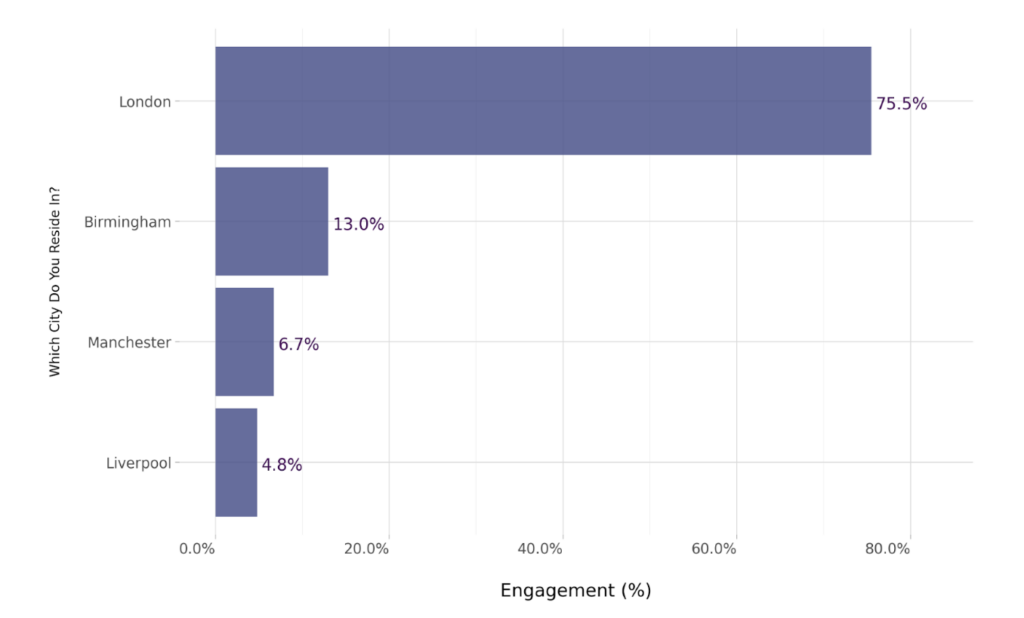
The cities where our audience resides reflect where block management activity is most concentrated. London leads with 76%, followed by Birmingham at 13%, Manchester at 7%, and Liverpool at 5%. These locations are population centres, so it makes sense that they are hubs for flats and multi-unit buildings where professional management is often essential.
The cost of those services also varies by region. In Liverpool, some managing agents charge as little as £100 per unit. In London, fees typically range from £250 to £700 per unit, rising even higher in premium developments. With more properties under formal management and higher service expectations, it’s no surprise that London dominates. It’s where block management companies are more visible and more heavily relied on.
How Block Management Shapes Everyday Living
The opinions of these people living in flats managed by a block management agent offer a window into how today’s residential buildings are run and what residents expect from the people managing them.
Across the board, one theme is consistent. The quality of block management has a direct impact on how a building feels, functions, and is perceived. From daily maintenance to long-term trust, every detail counts. As expectations continue to rise, so too does the opportunity for management companies willing to listen, adapt, and deliver consistently well-run homes.
Methodology
The data is sourced from an independent sample of 7,512 people’s opinions of those living in flats in the UK managed by a block management agent from X, Quora, Reddit, Bluesky, TikTok, and Threads. Responses are collected within a 65% confidence interval and a 23% margin of error. Engagement estimates how many people in the location are participating. Demographics are determined using many features, including name, location, and self-disclosed description. Privacy is preserved using k-anonymity and differential privacy. Results are based on what people describe online — questions were not posed to the people in the sample.
About the representative sample:
- 58% of people living in flats in the UK managed by a block management agent are aged 35 and older.
- 54% identify as female and 46% as male.

